As A First-Time Mom, I've Made About A Million Mistakes In Just Seven Months — But These Are The Most Important Lessons I've Learned
Hi, I'm Hannah, and I'm a first-time mom to a 7-month-old girl named Ellie. Parenthood has already been a wild ride — no doubt the hardest, but also the most rewarding experience of my life. While I'm only seven months into this journey, sometimes it feels more like seven years 😅.
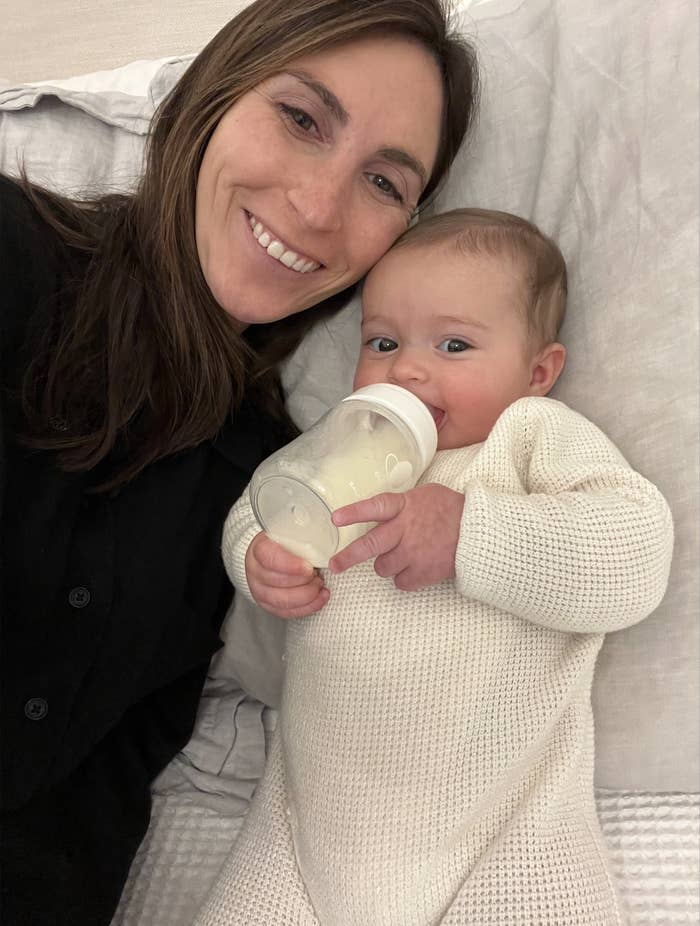
Anyone with a baby knows that being a new parent, in particular, is quite the adventure. You're catapulted into this new life with a brand-new human you're meant to take care of, and no matter how many baby books you've read, you still don't really know what you're doing.
Being a first-time parent is a gigantic learning curve...one that seemingly never ends. I've already discovered so many new things in the past seven months, and I've made tons and tons of mistakes. But as I look back on the past weeks and months, a handful of lessons really stand out.
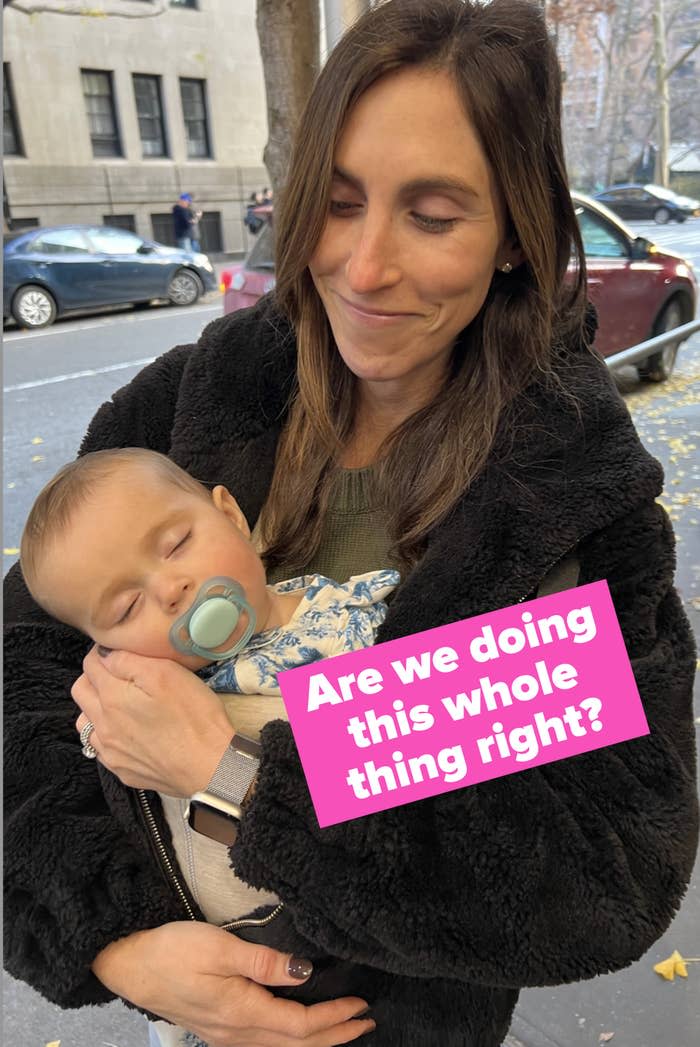
I am certainly no expert (see above, re: 5 bajillion mistakes). And by no means do I have anything figured out. I'm just a mama taking this whole parenthood thing step-by-step. So I wanted to put together a bunch of the things I've already done wrong and what I've learned from these mistakes. Maybe you're a parent who can seriously relate, or maybe you're an expecting parent just trying to feel a little bit prepared. Hopefully, the following makes you feel a little more supported in your journey!
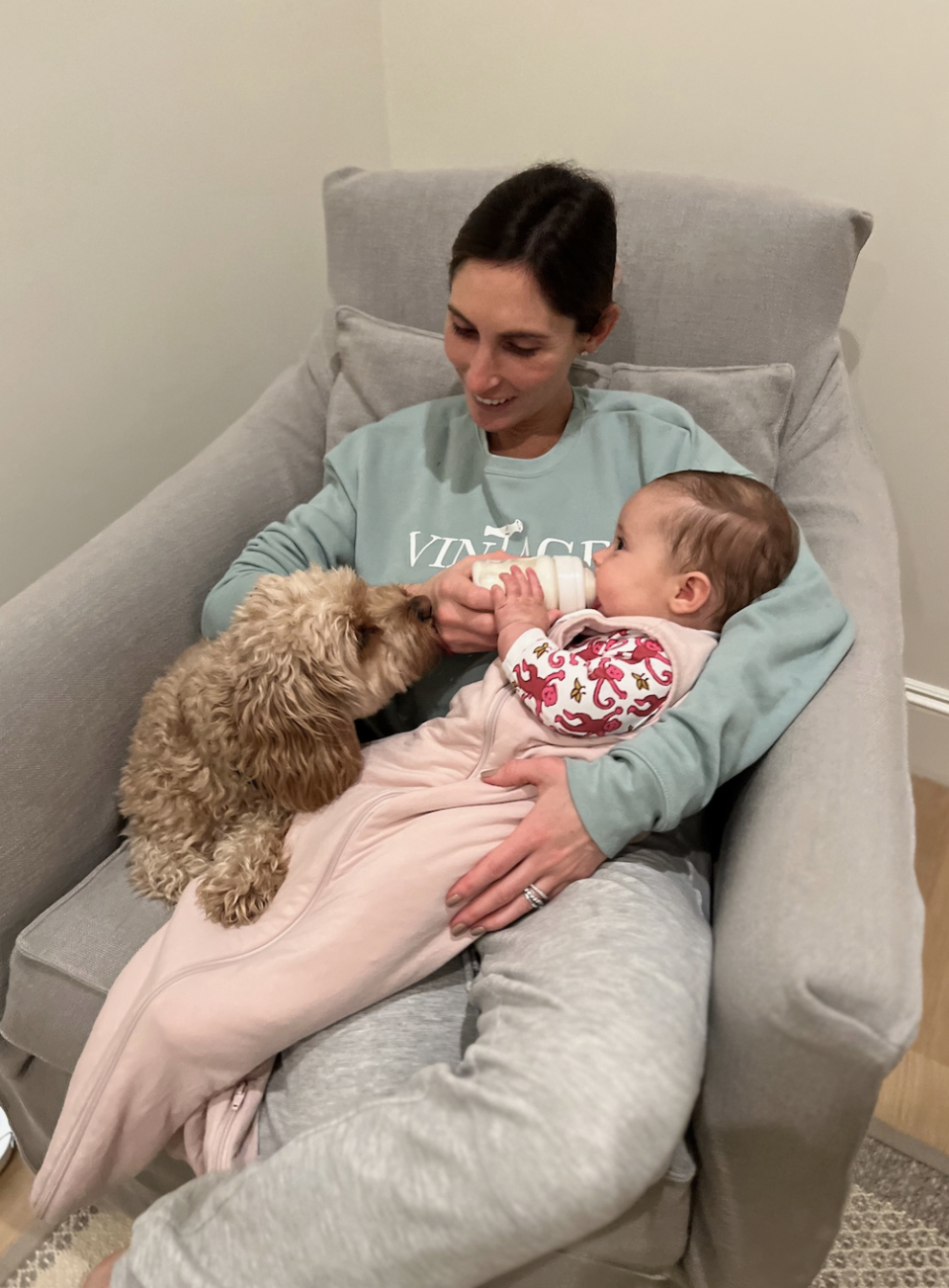
1.Not giving myself enough grace in the throes of the newborn days.

I am a person who needs lots of activity, and I pride myself on usually maintaining a fairly healthy lifestyle. I cook lots of wholesome meals at home, I work out often, and I go for long walks daily. So when I found myself with a tiny baby in the sticky, hot days of summer in New York City, I was in for a reality check. My step goal came crumbling down, I couldn't even find 20 minutes for a home workout, I was scarfing down a bagel for lunch rather than a homemade salad and spending hours on the couch, and plenty of days, I didn't even find the chance to shower.
At first this was an extremely difficult adjustment, and I was really hard on myself. I wanted to be able to find some semblance of my old routine, and I felt lazy because of the person I was becoming. I wish I could go back and tell myself just to embrace this short period of sluggish newborn life. I would tell myself this: "It's OK if you don't change out of your sweatpants today. It's OK if you binge-watch Daisy Jones and the Six (again) rather than start that novel on your bedside table. It's OK to order in pad thai for the second time this week and eat the whole damn thing, saving none for leftovers. You just created a new life. This 'postpartum you' isn't going to be you forever, and you will get back to yourself, even though it doesn't feel like it right now."
2.Worrying that I was "spoiling" my baby.

For the first few months, I did pretty much every single thing within my power to minimize Ellie's crying. When she would wake up crying in her bassinet, I would run to her. I would pace around outside during her nightly witching hours because the fresh air calmed her down. I would hold her in the carrier for hours upon hours each day because she only napped close to my chest. And while I bent over backward for her, I worried if I was spoiling her.
Was my constant coddling going to backfire and make her unable to soothe herself? Should I be letting her cry just a bit more? Was she getting too used to being constantly attended to? I relayed these fears to my pediatrician. And her answer: You cannot spoil or instill bad habits in a newborn baby. They are these tiny, helpless creatures that are just getting used to the big, scary, loud world. So when Ellie is 12 years old and complaining that she wants me to buy her the newest, trendiest so-and-so, I'll just say sorry and remind her that I spoiled her enough for a lifetime back when she was 3 months old.
3.Fixating so much on naps.

Like many babies, Ellie was a really bad napper for the first few months. I complained to so many mom friends about our nap woes, and the common feedback I received was that naptime can be absolute chaos for a while! Still, I was so concerned with doing everything in my power to improve naps and teach Ellie how to nap in her crib. I would get so frustrated when she would wake up after 20 minutes, and feel that I was doing something wrong.
Fast-forward to the present: Ellie is 7 months old now, and she is a great napper. She puts herself to sleep on her own and sleeps for long stretches. But I don't think I can take much credit for the change! Most likely, she just got older, and her sleep hormones began to regulate. It's really easy to fixate on naps: A rested baby is a happy baby, and I wanted Ellie to become a good napper. But in retrospect, I wish I'd stopped worrying so much about forcing crib naps and trusted that, in time, they would improve.
4.Comparing my baby with other babies.
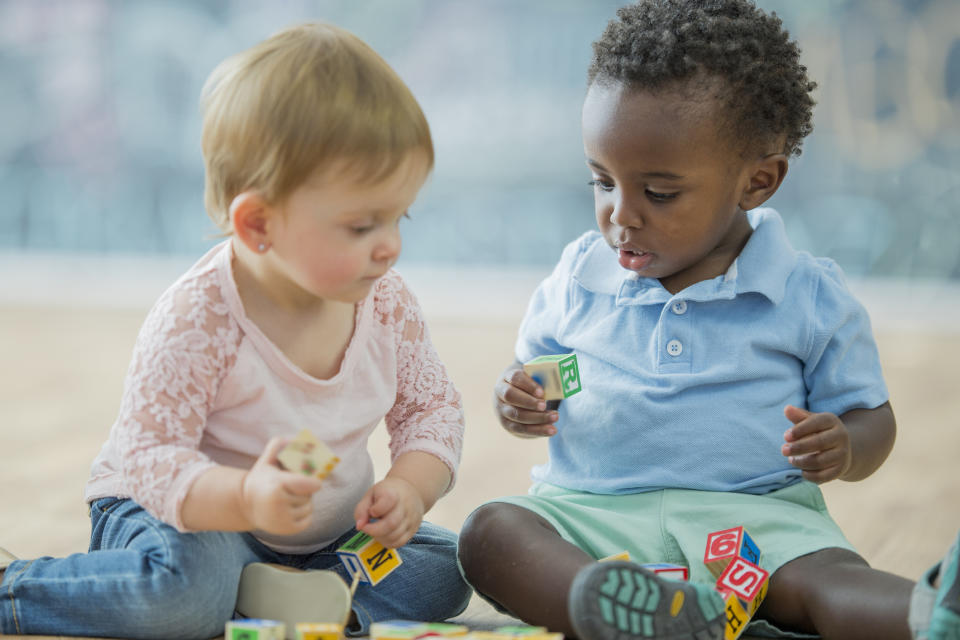
IMO, it's really hard not to compare your baby with other babies, especially when it's your first child and you don't quite know what to expect. Other babies become a road map for what to expect. But this is often a doubled-edged sword. For example, a friend of mine had a son who was just one week older than Ellie. When her son turned 4 months old, he was rolling all over the place, while Ellie was showing pretty much zero interest in rolling.
Naturally, I worried. Was Ellie not hitting her milestones appropriately? Would she ever roll at all?! Then I spoke to another mother, and another one, both of whom told me their babies didn't begin to roll until closer to 6 months. The moral of the story: All babies are different! And at such a young age, things can change drastically in just a few weeks. Ellie decided she wanted to start rolling in due time. She started sitting in due time. And then stringing syllables together. And now she's maybe beginning to show interest in crawling. Every baby develops at their own pace, and I've been so much more relaxed once I stopped comparing Ellie with other babies, realizing that she will do things when she's ready.
5.Obsessing over my baby's sleep (or lack thereof).
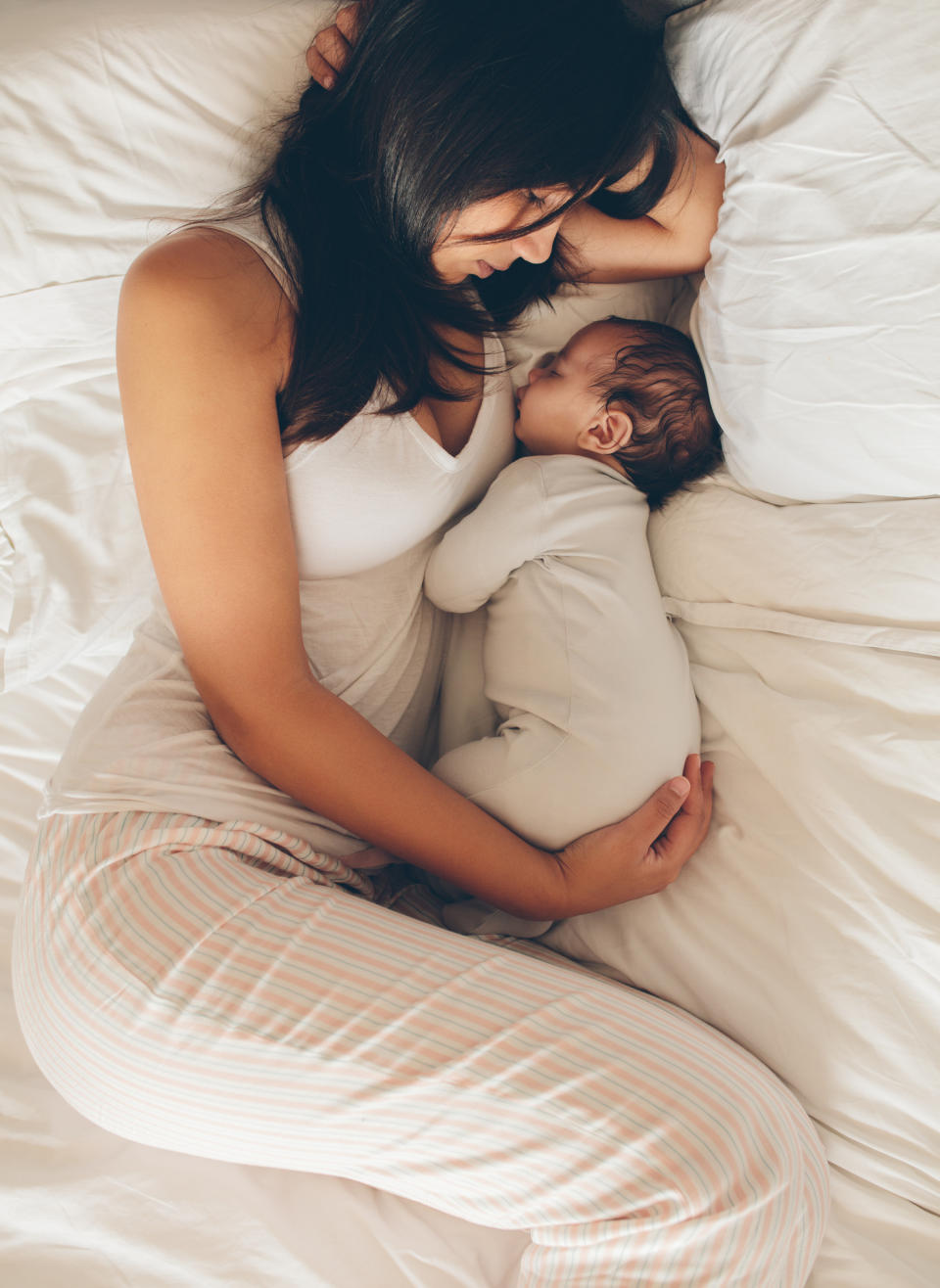
Over the course of just seven months, I feel like we've already experienced about six thousand different phases of sleep. First, there were the nearly constant night wake-ups of the newborn weeks. Next, Ellie started sleeping for longer stretches with help from me rocking her to sleep. A few weeks later, she learned how to put herself to sleep and go for most of the night. Then, just when everything was looking great, she started waking up at 4:30 a.m. and refusing to sleep anywhere else but in my arms. Then it was back to uninterrupted nights and, soon after, 5:30 a.m. wake-ups.
There was a time when I spent so much time following different sleep consultants on Instagram, reading blogs and websites about sleep, and trying everything to help Ellie sleep better: longer wake windows between naps, one fewer daytime nap, one more daytime nap, and earlier bedtime. But now I'm done stressing about sleep. On the off morning, when Ellie wakes up at 5 and can't settle down, I don't stress about forcing her to sleep in her crib, and I've stopped worrying about enforcing bad habits. I bring her into bed with me (safely!) so we can both get a few more hours of rest, and then the next morning, she sleeps on her own until 7. When it comes to baby sleep, it's a wild wide. Rather than lose my mind over it, I just tell myself that like everything else in life, these sleep issues will pass.
6.Paying way too much attention to milestones.
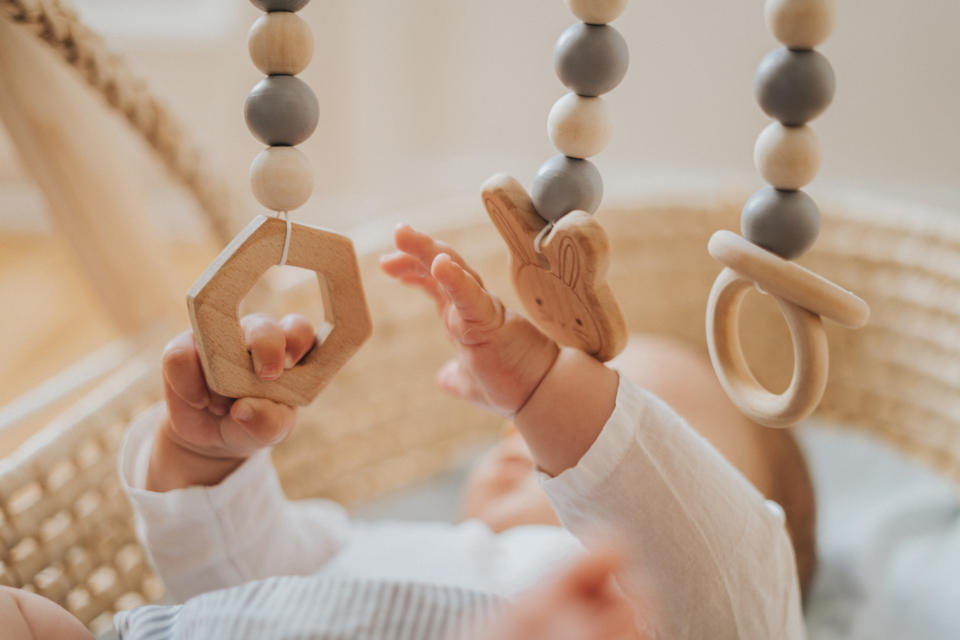
Whenever I bring Ellie to the pediatrician, there's talk of milestones. Is she hitting her milestones? Am I concerned about anything? From my experience so far, baby milestones are a funny thing. Look online at a website like the CDC, and you'll find that there is a general time frame when babies should be beginning to do different things, such as following the sound of Mom's voice, lifting their arms to be picked up, stringing syllables together to make sounds, reaching for toys. And for a first-time mom, it's very easy to get overly fixated on these milestones (aka me wondering why my 4-month-old daughter had no interest in rolling over).
When I expressed my concerns to the pediatrician, she all but laughed at me. While milestones are great indicators of when babies should be beginning to do things (and oftentimes, in our experience, they are very accurate), they are no more than markers. Just because my baby wasn't rolling at 4 months on the day or sitting at 6 months on the day didn't mean I should be concerned about her development. I still pay attention to milestones in order to better teach myself how to play and interact with Ellie in a way that's appropriate for her age, but I don't worry about them much.
7.Trying to thrive instead of survive.
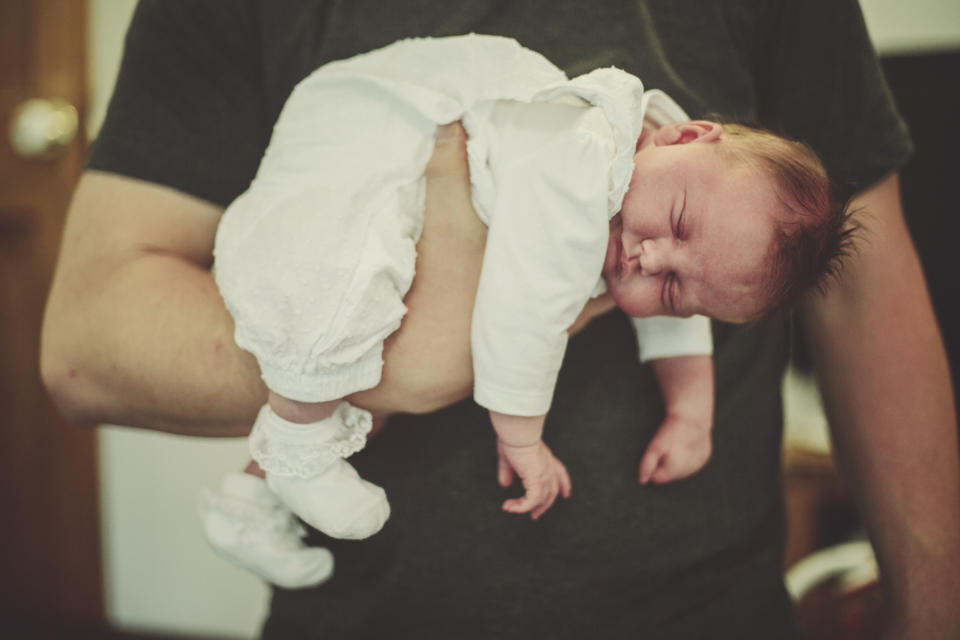
I met with a doula when Ellie was 5 weeks old, and she gave me some of the best advice I'd heard. "You are in survival mode during the newborn weeks," she said. In other words, having a baby catapults you into a life that is different from anything you've ever experienced before. Do what you need to do in order to get through the days and nights.
For us, this meant occasionally allowing Ellie to sleep in our bed (safely in her Snuggle Me Infant Lounger) on her most difficult, sleepless nights. It meant eating a bowl of ice cream for dinner and saying "Screw the veggies" because that's what I was craving. It meant saying no to visitors on days when I just wanted to lie on the couch and not see anyone besides my husband and baby. Of course, I didn't need anyone's permission to do these things, but it made all the difference to hear that it's more than OK to just focus on surviving during these difficult weeks.
8.Not paying better attention to wake windows.

I wrote all about baby sleep in a previous post, but one thing I wish I'd paid more attention to from the beginning is the concept of wake windows. A wake window is the period of time when a baby is awake between sleeps. These windows get longer and longer as a baby gets older. Young babies need to nap very often, but it can be tricky to decipher when they are tired, especially for babies like mine who don't know how to nap without help. When I read about wake windows and started focusing on them as a guideline for when to help Ellie nap, life became so much easier. I found she was getting overtired far less frequently, she was taking more restful naps, and everyone was much happier.
9.Overthinking and weighing too many opinions.
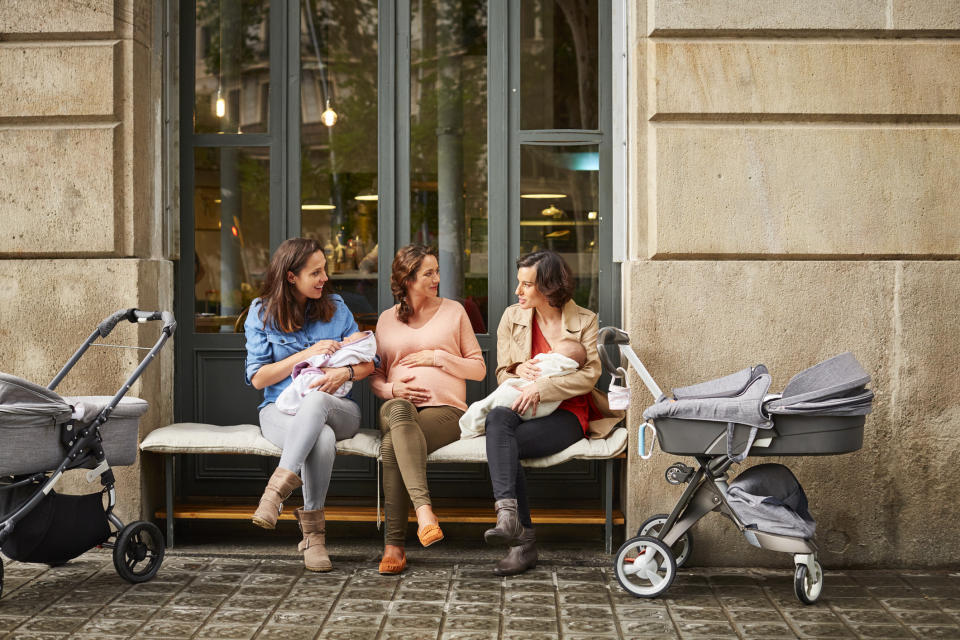
When you have a baby, you are inevitably going to hear a ton of different opinions. You'll get advice from your mother, from the pediatrician, from your OB-GYN, from the lactation consultant, from the random woman who passes you on the street and sees you pushing a stroller with that sleep-deprived stare in your eyes.
All of these people are going to have different opinions and attitudes about how to best raise a child. And the bottom line is that your own opinion is the only one that matters. It's so great that your mother-in-law breastfed your husband until he was 1 year old or that your neighbor sleep-trained her daughter when she was 8 weeks! That doesn't mean that these child-rearing choices are right for your lifestyle. Ask others for advice when you're seeking it, and tune out the input when you don't want to hear it. But ultimately, give your own opinion the upper hand.
10.Not going with my gut.
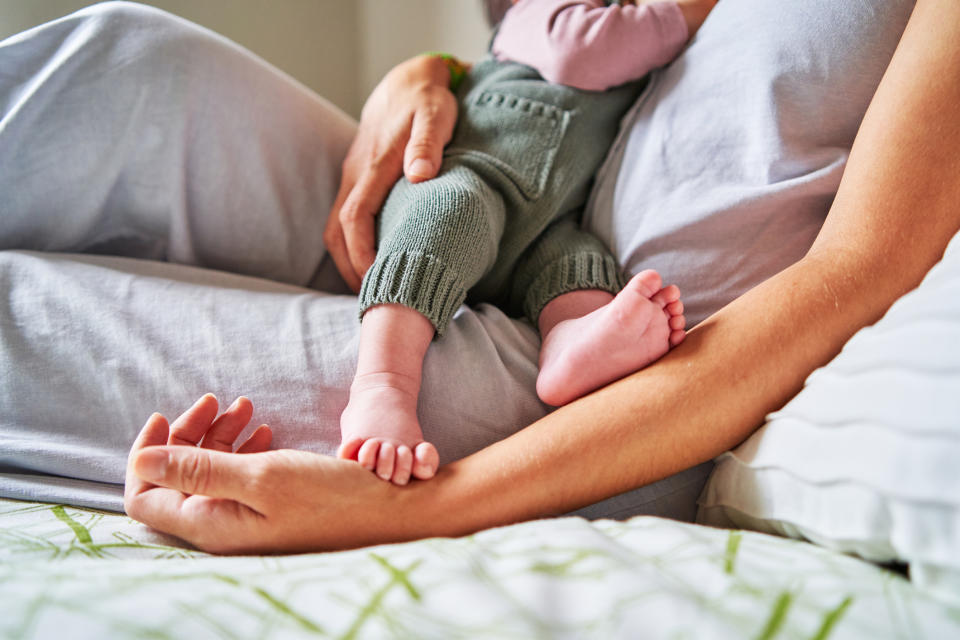
When I brought Ellie home from the hospital, everything felt very uncertain, and I didn't trust myself at all. But within a few weeks, I felt that I had learned my baby's secret language. And looking back, I know now that I should have always, always trusted my gut.
There were plenty of instances where I doubted my instincts. For example, I was exclusively breastfeeding Ellie until she was about 5 weeks old, at which point she was growing quickly, and I worried that she might be hungry and not getting enough from me. I met with a lactation consultant, who told me to breastfeed on demand, as frequently as Ellie wanted to eat, and she would be getting enough. I asked the pediatrician: She assured me that introducing formula was totally safe, but said there was no need. Ellie was growing nicely and staying right on the weight curve. OK, I thought, if these professionals say that she's getting enough, then surely she must be.
But Ellie seemed hungry to me. When I would give her a pumped bottle at bedtime, she would easily suck down 5 ounces of milk (which was more than the pediatrician said she should want to drink). She was barely going two-hour stretches during the daytime without wanting to eat. So I decided to do the thing that the pediatrician and lactation consultant deemed unnecessary: I would give Ellie a few ounces of formula to top off her daytime feeds and free myself up a bit from constantly nursing her. Maybe she didn't need more food, but these larger feeds helped Ellie go without eating for longer stretches, and they gave me peace of mind. Introducing a little formula made Ellie less fussy, and it was amazing for my mental health, yet I avoided the option for too long because I was told it was unnecessary. This was just one experience of many where I realized that I know my baby best. Now, whenever I feel something in my gut, I know that I should follow my instincts.
Note: When following your gut as a parent, just remember to check in with your child's pediatrician before making any big decisions.
11.Buying way too many baby clothes.
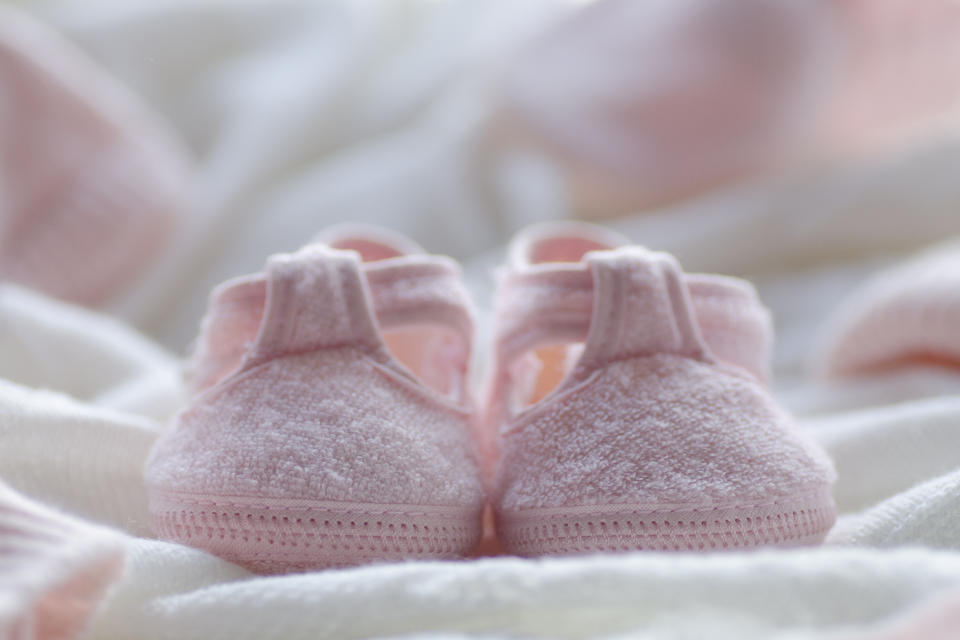
Baby clothes are literally the cutest thing in the entire world, and if you're anything like me, you will buy far too many of them. But word to the wise: Babies grow really fast! I can't believe that my 7-pound baby is now 16 pounds. But that's how quickly it happens. So you may want to learn from my mistakes and exercise some self-control: Go easy on the baby's clothes, especially baby shoes. Why the literal heck did I buy baby shoes for a newborn whose feet did not touch the ground? I bought far too many outfits that Ellie only wore once or twice. Plus, you can try to convince yourself otherwise, but let's be honest: Your baby is going to live in pajamas for the first few months.
12.Spending too much time on Google.

There was a time when Ellie was about 4 months old and hadn't pooped in four days. Of course, by the time I wanted to ask the pediatrician about her poop strike, the office was closed for the weekend and Google was readily available. So I googled my question. And of course, the responses made me fear the worst. I went down a rabbit hole, wondering if Ellie's mere constipation was actually a life-threatening issue.
As soon as the pediatrician's office opened on Monday, they responded to me right away, quelling my fears: "It's very normal for breastfed babies to go as long as 7 to 10 days without pooping." Oh. Turns out, maybe I shouldn't have googled after all.
So I can't say I've stopped googling my questions entirely. I'm only human, and I only have so much self-control. But I've really tried to stay off the internet for most issues and instead talk to other moms and medical professionals.
13.Blaming myself when I couldn't soothe my baby.
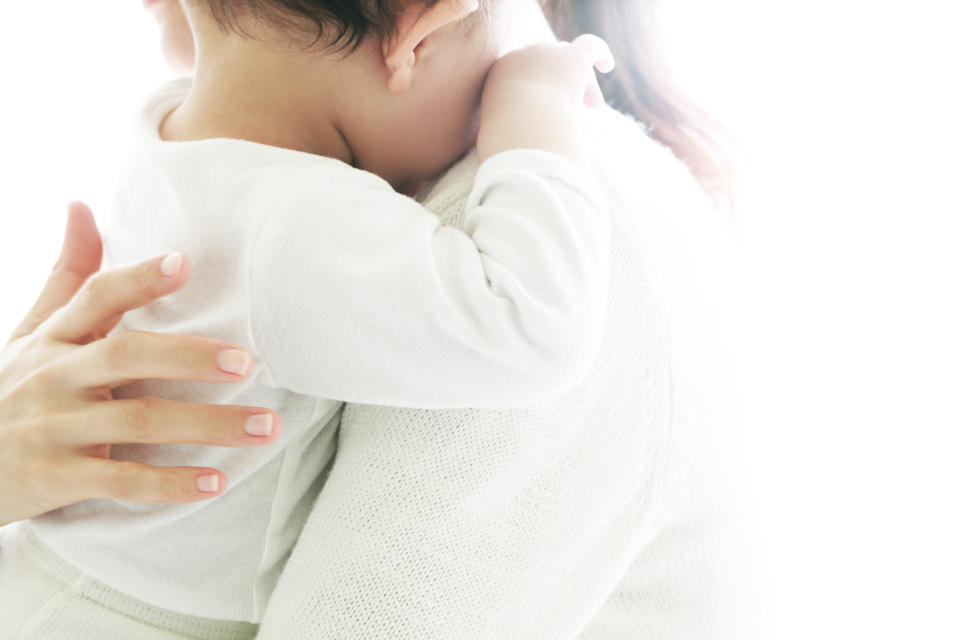
In theory, I always knew that newborns cry a lot, but I didn't realize how much they cry until I had one of my own. And it makes sense when you think about it. Crying is quite literally the only way that a baby can express themself. But oh man, is that crying brutal, especially when there's nothing you can do to make it stop.
As a first-time mom, I had so many times when I felt like a complete failure for not being able to soothe my baby. I could shush or try to nurse or rock or sing or go outside or put on the shower for that calming running-water sound, and still, there were times when Ellie would cry and cry. This was just about the worst feeling in the world. But now I see it for what it was: Ellie was crying because she was a tiny baby, not because I was a terrible mom. She was safe, she was loved, she was dry, and she was fed, and sometimes, ensuring these conditions is just about all you can do.
14.Being afraid of my baby crying in public.
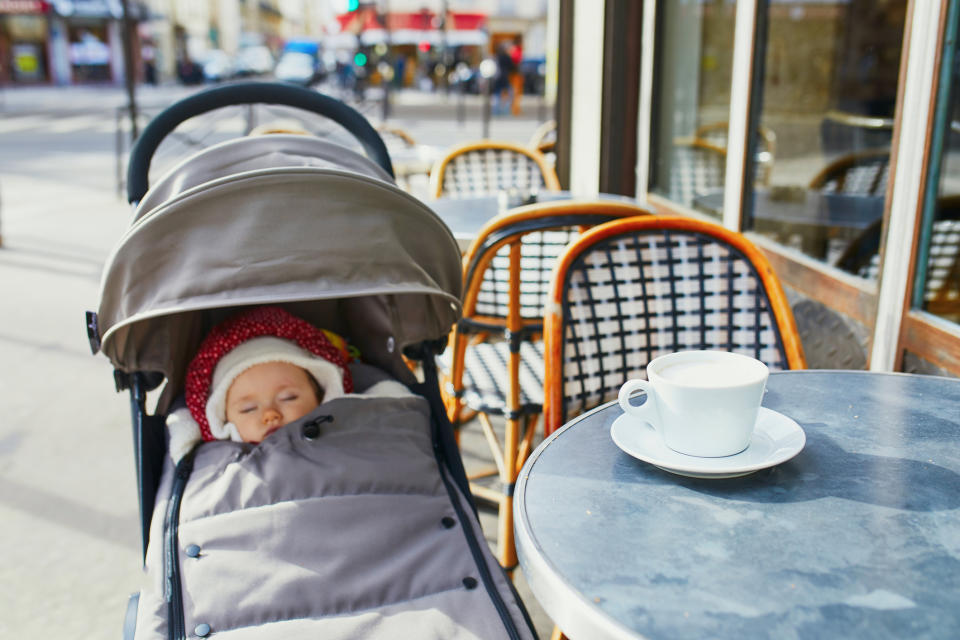
Babies are unpredictable. One minute they're laughing and playing peekaboo, and the next, they're throwing a tantrum. Especially when Ellie was a newborn, I truly had no idea when these crying fits would strike. As a result, my husband and I were afraid to do a lot of things in public with her, like take her to brunch or to a friend's birthday party.
But then one day a friend said to me, "Nobody is more bothered by a baby's crying than the parents." And when you think about it, this is SO true. When Ellie cried in public as a little baby, most strangers probably tuned it out or just thought, Welp, babies cry! Sure, I've been on flights where there's a crying baby who can't seem to settle, and it's definitely not pleasant, but I can only imagine that the crying baby's parents were a whole lot more upset than I was about the noise. So I adjusted my thinking. I couldn't refrain from doing things with my daughter because I was living in fear of the slim chance of a crying fit. I stopped overthinking it. When we go out for an early dinner these days, Ellie is great 90% of the time. And the other 10%? Well, I take her outside for some fresh air until she chills out, or we pack up our food and finish it at home. Babies cry, and that's OK!
15.Stressing too much about a "schedule."
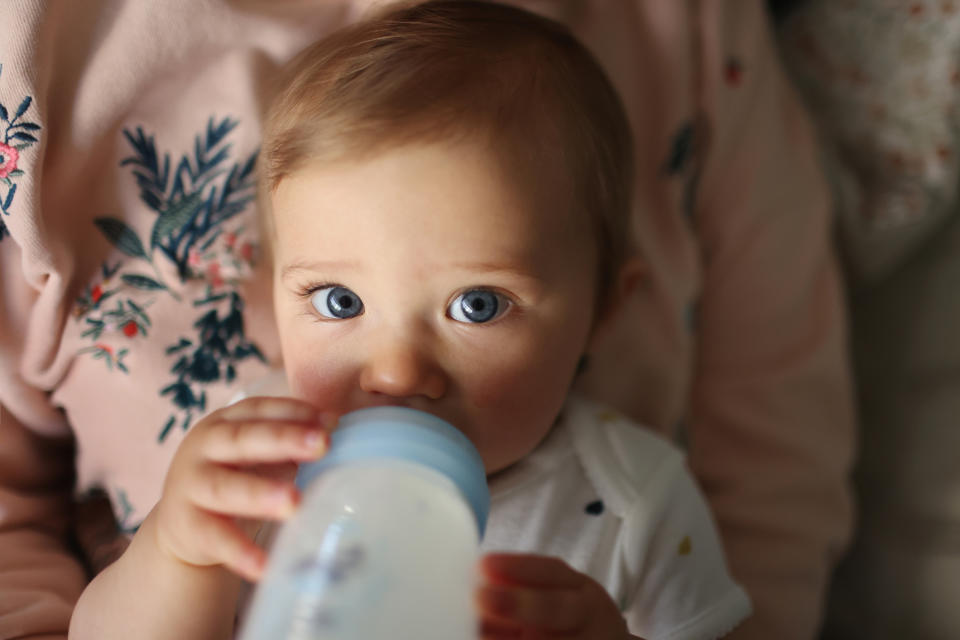
Parents talk a lot about schedules, a concept that I found rather stressful at first. For example, a friend might say to me, "My daughter will be up from 11 a.m. to 2 p.m., so let's shoot for brunch then." Meanwhile, Ellie could nap for five minutes or two hours...life looked a lot like this for the first four months or so. Our "schedule" was nonexistent, plans were flexible, and life was all over the place. I was overwhelmed. How do I train her to be more like these extremely predictable babies for my own sanity?
Well, as Ellie got older, she developed a fairly good schedule without being forced. Her naptime and awake time became way more predictable. She would be able to go longer stretches between bottles so that she was eating at fairly consistent times throughout the day. This is just what happens as babies grow. But despite all the progress, her so-called schedule is never set in stone. Sometimes she has a horrible first nap and the whole day is out of whack. As she starts to eat more solid foods, sometimes she just isn't interested in her bottle at the time of day she usually gets it. I've learned that parenthood is all about rolling with the punches.
There will always be plenty of bumps in the road. When Ellie transitioned from three naps a day to just two, our "schedule" shifted once again. And when she drops that second nap, who knows what will happen!? But I now trust the process and feel confident that everything will settle as it's supposed to.
Now I'd love to hear from you! What were the mistakes you made as a first-time parent, and the biggest takeaways you learned from them? What do you wish you could go back and tell yourself the day you brought your baby home? Tell us about it in the comments or drop it into this Google form.


